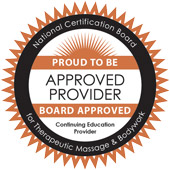Kinesiology – Muscle Testing
These classes provide the best opportunity to learn how to perform accurate muscle testing (manual resistive testing), which is a fundamental tool in many emerging methods of healing and bodywork.
The kinesiology classes offered by Polarity Healthcare are oriented toward massage therapists. Participants will use manual muscle tests to locate stress, injuries and imbalance in the body. To correct these problems, they will learn techniques that address posture, muscle tone, internal organs, emotional issues, nutrition and nervous system functioning. The Kinesiology Connection is an excellent one-day introduction to this work.
For those who aren’t interested in testing muscles, each class also offers practical instruction in the use of powerful reflex methods, hands-on experience with important postural muscles and an understanding of the relationship between muscles, emotions, and acupuncture meridians. There is something here for every therapist.
How it Works
Kinesiology Muscle Testing (derived from Applied Kinesiology from which it evolved) works with the structural, chemical, energetic and emotional aspects of the body. A muscle which tests “unlocked” or “weak” is usually associated with dysfunction in a particular organ, system or meridian. This muscle response test can identify key imbalances, while they are still easily correctable. It also provides a way of testing for food sensitivities, emotional issues, and almost anything with the potential for affecting our health. The result can be fast, effective relief from physical and emotional stress or pain.
Continuing Education
- Polarity Healthcare is approved as a continuing education provider by the Florida Board of Massage. (CE Provider # 50-1607)
- Randall W. Gibson is approved by the National Certification Board for Therapeutic Massage and Bodywork (NCBTMB) as a continuing education Approved Provider. (Provider #325713-00)
Individual Classes (Note: We no longer offer “Touch For Health” classes)
- The Kinesiology Connection (1 Day – 8 CE hours)

